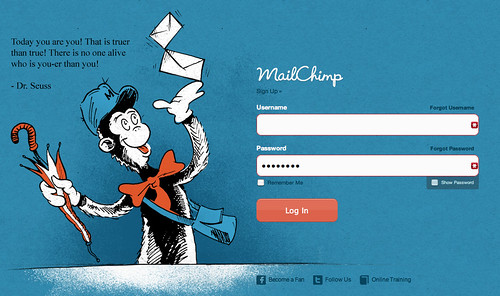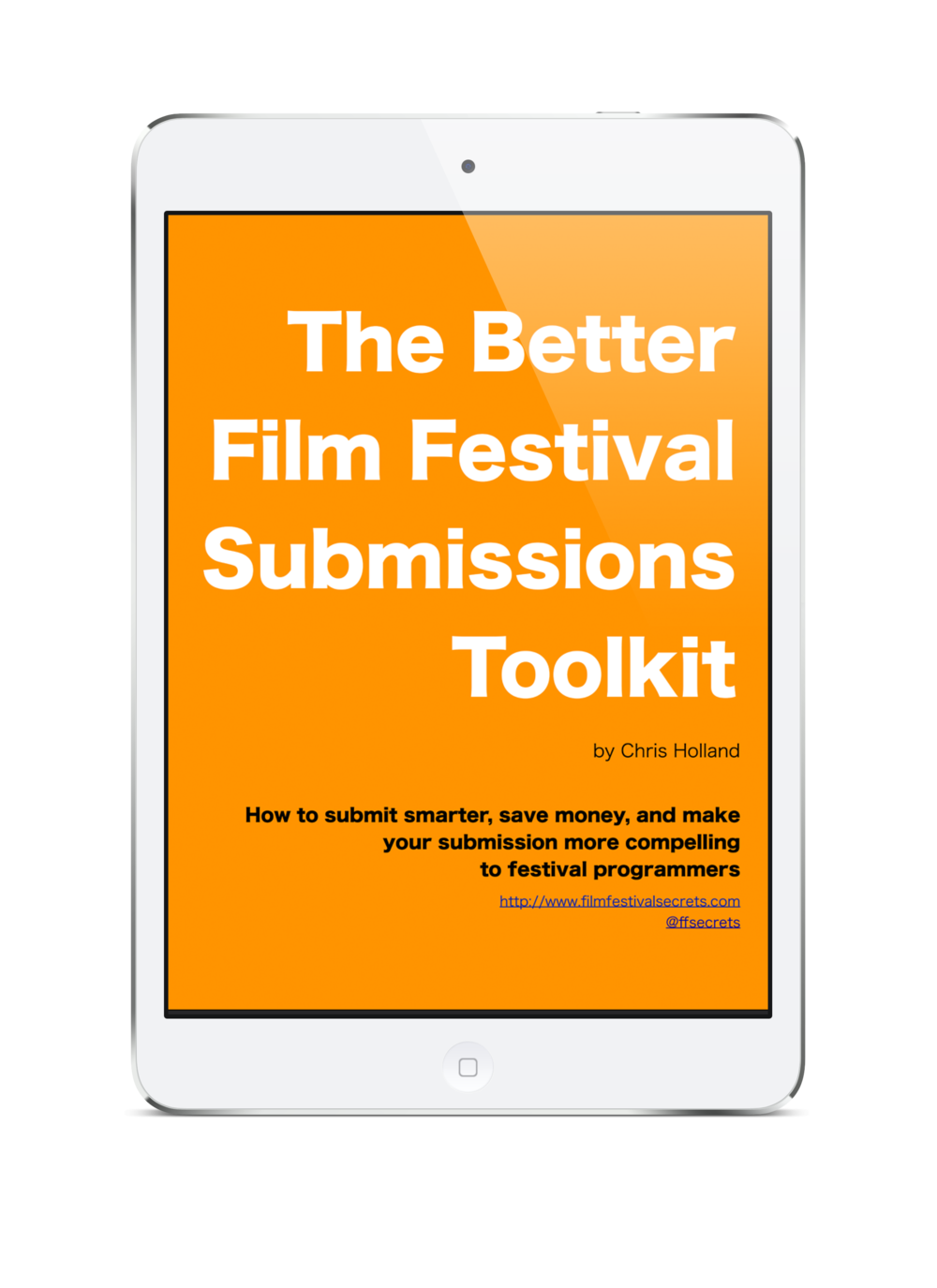When to start marketing your film? Now.
Wherever you are in the production or release of your film, you should already be marketing it. Build your audience now so when you announce that first screening, they’re all clamoring to buy tickets. After all, making a film is only half the battle. The other half is finding people who want to see it.
Press Kit Essentials: What Should - and Shouldn't - Be In This Crucial Piece
Film Festival Secrets Podcast Episode #22: Emily Best, founder of Seed & Spark
Since meeting filmmaker and startup founder Emily Best in November, I’ve wanted to get her on the podcast to talk about her company Seed and Spark. This fundraising tool reimagines crowdfunding from the perspective of an indie filmmaker and takes the experience way past fundraising into audience building and distribution.
If Your Phone Is Dead at Sundance . . .
FilmFreeway Turns up the Heat on Film Festival Submissions and Withoutabox
What "Stripped" teaches us about the future of self-distribution and the marketing power of "Calvin & Hobbes."
This is the future of film distribution that "the industry" has anticipated in increasing degrees over the last decade: filmmakers creating quality content, cultivating an audience, and selling directly to that audience with as few middlemen as possible. The tools for this distribution model have been sneaking up on us but they finally seem ready for prime time. More importantly, there finally exists a critical mass customers who have the technology to watch movies this way -- and they seem perfectly fine "owning" just a digital file.
Film Festival Secrets Podcast #16 - Get the choir singing: the foundations of indie film marketing
7 Things You Absolutely Must Have On Your Film's Web Site
Sundance Institute's Creative Producing Labs
Fantastic Fest founder Tim League speaks @Google
Film festival organizers and filmmakers should understand the Alamo Drafthouse philosophy – in an industry where theater attendance is declining, the Alamo is reliably doing great business. Not only that, this theater chain is expanding into film festivals, distribution, and merchandising.
How Your Trailer May Kill Your Chances of Being Accepted
Charles Judson of the Atlanta Film Festival, writing for CinemATL.
Programmers are no different than anyone else. Just as it is with audiences going to a local multiplex, we look at trailers and we instantly decide if films are ones we think we want to see, as programmers and as film lovers, if we think will enjoy them.
. . .
Unfortunately, too many films submitted to festivals either have misleading trailers–stop playing by the Hollywood big budget marketing playbook and you would be much better off. Or they do not have strong trailers at all.
So far this season I’ve seen at least three films that a filmmaker sent me a trailer for that had me pumped, and I walked away a little disappointed that the film was nothing like the trailer.
I'm in favor of cutting a trailer for your film and as a screener for festivals I rarely watch the trailer first.
Read How Your Trailer May Kill Your Chances of Being Accepted.
Every Festival is Different
SXSW-Every Film Festival is Different from Sylvia Binsfeld on Vimeo.
This clip is from the instructional video How to Get Your Film Into Film Festivals, and it highlights the surprise that many filmmakers get when they arrive at their second film festival.
While the principles of marketing are much the same everywhere, the specifics of how to reach an audience can be vastly different. Fortunately the festival staff is there to help you understand the rules and vibe of their event. Pay attention to the guidelines they give you and be sure to take advantage of any opportunities for press and marketing through official festival channels. Too often filmmakers figure they'll be lost in the shuffle or it can't be worth filling out those forms or whatever – don't fall into that trap. The rewards at any festival go to the people who show up and put in the effort.
Inspiration: Festival Marketing Tactics from "Dying to Do Letterman"
I've had a fair number of clients over the last few years go to festivals with marketing plans, but I don't think I've ever had clients who went after an audience with gusto quite like this. Joke and Biagio, the filmmakers behind Dying to Do Letterman, premiered their doc feature at Cinequest this past week. Not only did they create custom videos for the festival that fit their film's specific theme, but they also hit the streets with friends and family to make sure that people filled those seats.
Check it out:
I love the hospital scrubs - designed to attract attention (when a gang of people walk down the street wearing the same thing, you notice), appropriate to the film's theme, and comfortable. The buttons are so clever. Because they have a blank space for the recipient's dream job/trip/whatever, it turns the act of handing off a button into an interaction, an occasion for conversation, and it's incredibly memorable.
Kudos to Biagio and Joke for killer guerilla marketing tactics – and for having the guts to get out there and promote their film one person at a time. They sold out the premiere and I think their second screening too.
MailChimp in the Hat
 Just one of the reasons I love using MailChimp - customized login screens on special days. This is the screen for March 2nd, which is the birthday of Theodore Geisel, aka Dr. Seuss.
Just one of the reasons I love using MailChimp - customized login screens on special days. This is the screen for March 2nd, which is the birthday of Theodore Geisel, aka Dr. Seuss.
If you send out regular emails, I can also recommend MailChimp as being fantastically easy to use and a damn smart tool. Check it out.
Peep Show Interview with CineKink's Lisa Vandever
An insightful interview with one of my favorite festival directors.
I know that when I think of DIY filmmaking, one of the first filmmakers who comes to mind is Tony Comstock, whose wonderful film, ‘Damon and Hunter: Doing it Together,’ played at CineKink a few years back. He and his wife, Peggy, have been producing and distributing explicit documentaries for the past decade – and they regularly top Amazon sales lists for number of DVDs sold. Obviously, they’re doing something right – during a recent distribution/marketing panel I attended, Tony was tweeting me from a sailing excursion through the Caribbean, prodding me to ask the participants how many of them owned a yacht.
Overall, I think Comstock Films exemplifies how many filmmakers on the “porn/erotica” side have—largely through necessity—become proficient in getting their work out there and noticed once it’s been produced. Rather than waiting on the hope of some distributor picking them up, the need is there to reach out to an audience directly, bringing with it a front-running understanding of all the tools necessary to do so, especially staying on top of reaching out through the internet, including supreme mastery of SEO and finding ways to circumvent the many technical road-blocks that are intended to inhibit sexual content.
Read Peep Show Interview with Cinekink Director Lisa Vandever Part One at FilmSnobbery.
Be sure to check out the Programmer Profile of Lisa Vandever too.
Drive-In Theater Sees Revival In Illinois

A fun story from NPR about the resurgence in popularity of a drive-in theater in Illinois. Having survived the onslaught of home video, the theater has become a social hub for local families. The result? They're knocking down an abandoned cineplex to add a third screen.
The takeaway for filmmakers: there are all kinds of ways to watch movies, and therefore all kinds of ways to get your movie seen. You just need to find the hook that makes your screening an event.
Read (or listen to) Drive-In Theater Sees Revival In Illinois.
Photo credit: Wools.
Brian Chirls explains Crowd Controls at SXSW 2010
Yet another in our series of South by Southwest 2010 videos, this time with Brian Chirls, creator of Crowd Controls. This venture is based on his work with Four-Eyed Monsters and is currently powering some of the fan engagement with Iron Sky.
Thanks to Mark Potts for shooting and editing this video.
How Film Festivals Use Twitter
Bring your sense of humor. Make it personal, not corporate. Respond," said Meg Hamel, director of the Wisconsin Film Festival. "Don't make it seem like you're only doing this only to sell tickets. Don't make it seem like you're doing this because somewhere you read that social media was the next big thing. And here in Wisconsin, people really do care what you have for breakfast, as long as it involves bacon."
Includes a list of 21 festivals to follow.
Selling your film - when is the best time?
My argument here is really with the notion that a premiere at a major festival is your point of maximal awareness. It’s not, never has been and never will be, unless such festivals do a lot of re-visioning of what they are and how they operate. It’s truly a sign of the self-absorption of the entire industry that they can think this is remotely true.
Brian Newman follows up this past weekend's "The Conversation" conference with some thoughts on fest premieres and building awareness for your film.











